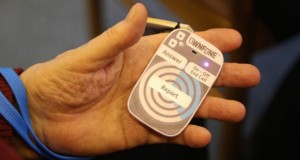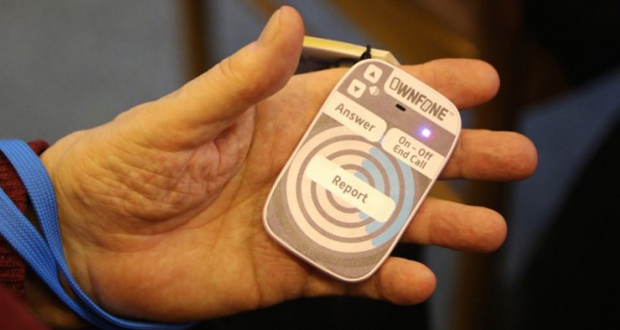Leeds Beckett Researchers To Evaluate Dementia Diaries Project
 Researchers at Leeds Beckett University are set to evaluate a project that brings together people’s diverse experiences of living with dementia as a series of audio diaries.
Researchers at Leeds Beckett University are set to evaluate a project that brings together people’s diverse experiences of living with dementia as a series of audio diaries.
The Leeds Beckett team will evaluate ‘Dementia Diaries’, a project which documents the day-to-day lives of people living with dementia, with the aim of prompting a richer dialogue about what it is like to live with the condition.
The research has been commissioned to complement the existing internal monitoring of the project and will help identify lessons that can improve the effectiveness of the project and project partners and to provide a valuable resource for others considering similar initiatives. The evaluation will also enable the Dementia Diaries participants living with dementia and their carers to understand if and how their efforts have contributed to change.
The researchers will look at how the work of Dementia Diaries has influenced media coverage and key services which affect the lives of people with dementia as well as exploring how people living with dementia who are engaged in the project have interpreted its value. The evaluation will also assess the effectiveness of the work and suggest improvements to the initiative for potential future projects.
Dementia Diaries is delivered by On Our Radar, a small communication rights non-profit comprised of a group of journalists, technologists and charity workers who develop mobile and web-based solutions that enable marginalised and offline communities to share their experiences, with the purpose of informing policy makers, service providers, and the public.
The project is funded by Comic Relief, managed by On Our Radar and delivered in collaboration with Innovations in Dementia and OwnFone. It began in January 2015 as a 9-month pilot and was subsequently extended for a further 12 months until 1 September 2016.
As the use of technology often becomes more difficult for those living with dementia, Dementia Diaries uses 3D printed mobile handsets which are customised to be as simple as possible, allowing participants to both record audio diary entries and capture their thoughts and experiences as they occur.
These handsets are linked to a dedicated voicemail and as soon as a diary entry is recorded, it is automatically sent via the internet to the editorial team at On Our Radar. The team will then listen to it, transcribe it and curate it for publication on the website http://dementiadiaries.org.
Dr James Woodall, Reader in Health Promotion and Co-Director of the Centre for Health Promotion Research at Leeds Beckett, said: “We are delighted to be involved in evaluating this important project. The aims of the Dementia Diaries to both promote the potential to ‘live well’ with dementia and to challenge stigmatising media coverage of the condition are so important in fostering a dementia friendly society.”
Claire Surr, Professor of Dementia Studies at Leeds Beckett, added: “Challenging inaccurate and negative reporting of dementia in the press has been identified as an important step to reducing societal stigma of the condition. This research will help to understand if and how the Dementia Diaries project is contributing to this.”
Speaking about the Dementia Diaries project, participant Chris Norris said: “Every weekend we mention the Dementia Diaries, just sort of keep it bubbling away there, because it is such a perfect resource to get the true picture of how people are living with dementia. What the Dementia Diaries does is it just, you know, you can go in and you listen, and you go, it’s just so real, that’s why, it’s real, rather than it’s just somebody written something down. It’s so real and that’s why we keep raising it everywhere, to raise the profile of how good it is, really. ‘Cause it is.”
Paul Myles, editorial manager for On Our Radar, added: “A lot of the Dementia Diaries participants thought ‘oh well, I’ve been written off’; they didn’t believe that they would have the opportunity to be a new technology user and to be developing their storytelling skills and to be featured in national media and other places.
“There’s a pride in picking up these new skills, adapting to new technologies and actually achieving something new in their lives when often people get diagnosed with dementia and people consciously or subconsciously write them off a bit and be like ‘it’s downhill from there’. There’s a lot about what they can’t do anymore, and they’re not denying that, but a lot of their faculties are still there, a lot of their personality traits are still there. The collective experience of having a group to belong to which they are campaigning with and lobbying on issues with a sense of purpose has been very positive.”
Professor Claire Surr is currently leading a study at Leeds Beckett, funded by the Department of Health Policy Research Programme (DH PRP), which will shape the future of education and training around dementia within the NHS through investigating the most effective approaches to training health and social care staff. Claire is also leading a £2.4 million study evaluating an approach to improving the quality of dementia care in care homes funded by the National Institute for Health Research Health Technology Assessment (NIHR HTA) Programme.
Dr James Woodall is a Reader in Health Promotion and the Co-Director of the Centre for Health Promotion Research (CHPR) at Leeds Beckett University. Much of James’s research has been with vulnerable and marginalised groups (e.g. prisoners’ families, prisoners, people with visual impairments, homeless populations), aiming to work with research participants in ways that are collaborative and empowering.





